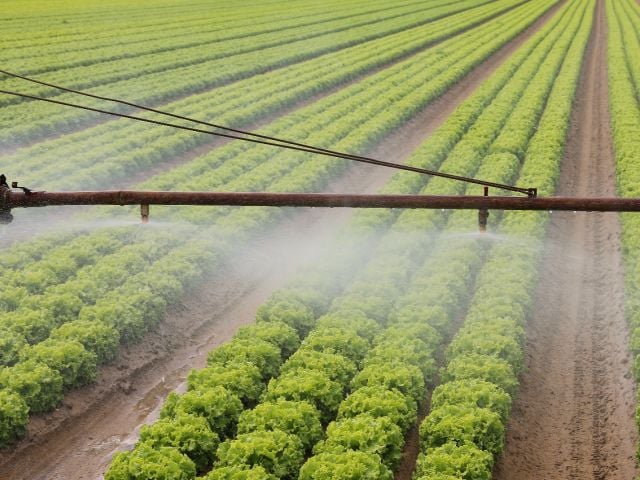
Events that used to be called “acts of God” – but that we now realize are increasingly driven by human activity – became the most important environmental news stories of 2012 in the opinion of Environmental Working Group’s staff of scientists, analysts, lawyers, organizers and others. Topping their list was the devastating and ongoing drought that beset much of the United States. As a group, climate-related events – including superstorm Sandy – garnered more votes than any other topic.
Close behind, however, were two stories about genetically modified organisms and the concerns they raise, which ranked second and third in importance for the year. Third in overall votes were a cluster of stories related to the congressional debate over reauthorizing the five-year farm bill, a discussion that will continue next year if industrial agriculture interests don’t succeed in slipping a “secret farm bill” into lame duck legislation aimed at tackling the nation’s fiscal crisis.
Here’s how EWG’s staff ranked the biggest stories of the year.
1. The worst drought since the 1930s spread over almost half of the continental United States, driving up food prices, endangering water supplies and navigation on the Mississippi River, and unleashing bitter policy debates about the proper role and design of crop insurance programs.
New York Times: Widespread Drought is Likely to Worsen
New York Times: Experts Issue a Warning As Food Prices Shoot Up
2. In California, a referendum initiative that would have required that labeling of food containing genetically engineered ingredients lost in the face of massive advertising expenditures by industrial agriculture and chemical and pesticide makers, but 48.6 percent of voters supported it. Clearly, the national conversation about genetic engineering will go on.
San Francisco Chronicle: Prop 37 Lost, But Backers Keep Fighting
Mother Jones: Did California Voters Defeat the Food Movement Along with Prop 37?
Appetite for Profit: Lies, Dirty Tricks, and $45 Million Kill GMO Labeling in California
Jackson Free Press: GMO Food Battle Not Lost
3. Contradicting the claims of companies that develop market genetically engineered seeds, a careful study finds that that GMO crops increase, not decrease, the amount of herbicides that growers use.
Seattle Times: Modified Crops Increase Herbicide Use, WSU Researcher Says
Science Daily: “Superweeds” Linked to Rising Herbicide Use in GM crops, Study Finds
4. News reports that some food producers mix ground beef with “pink slime” – chemically treated beef trimmings officially known as “lean finely textured beef” – leads to a precipitous drop in sales and the closing of several plants that made it.
USA Today: Company to Close 3 Plants Over “Pink Slime” Ground Beef
Huffington Post: Americans Have Beef With Food System Transparency
5. The every five-year battle to reauthorize the farm bill, which sets national agricultural policies and funds food assistance programs for millions, raged all year on Capitol Hill, pitting industrial agricultural interests and subsidy proponents against reformers (led by EWG) seeking to rein in lavish support for profitable growers and to strengthen conservation requirements.
New York Times: U.S. Farm Bill
Ag Mag: Top 10 Reasons to Reject the House Farm Bill
6. (tie) EWG’s “Plowed Under” report showed that huge swaths of land are being plowed and planted to grow cash crops as a result of record-high commodity prices and misguided incentives in federal farm policy.
6. (tie) The U.S. Department of Agriculture issues new school lunch policies that set calorie standards, reduce salt, sugar and fat and double the required amounts of fruits and vegetables, but Congress and industry push back in an effort to weaken the new rules.
Food Politics: USDA to Allow Flexibility in School Meal Standards
8. (tie) On Capitol Hill, allies of industrial agriculture use the drought as an argument for expanding crop insurance, but reformers take aim at proposals that would turn the crop insurance “safety net” into enviable profit guarantees for highly successful growers.
Washington Post: Drought Puts Crop Insurance Under Scrutiny
Chicago Tribune: Crop Insurance Has Become a Taxpayer Ripoff
Cedar Rapids Gazette: How Much Should Farmers be Protected?
9. EWG’s “Troubled Waters” report shows that that excess nutrients flowing into rivers and streams as a result of poor farming practices are forcing drinking water utilities to spend vast sums on water treatment and endangering public health.



.jpg?h=827069f2&itok=jxjHWjz5)